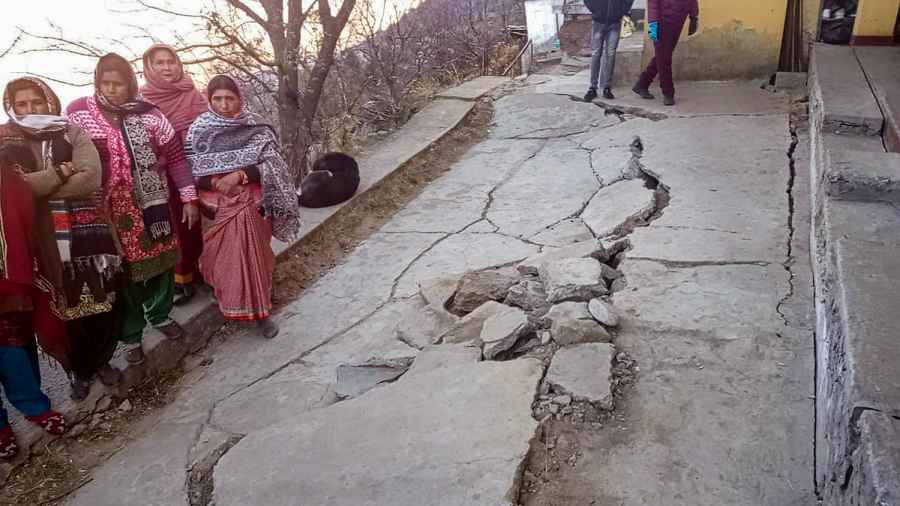The extensive damage to buildings and land subsidence in Joshimath in Uttarakhand was caused due to negligence and lack of environmental impact studies, senior Supreme Court advocate Rajiv Dutta said on Friday.
He was speaking during a lecture and Q&A session on 'Environmental Law' at the India International University of Legal Education and Research (IIULER) here.
"What is happening in Joshimath is a disaster. It is because whoever designed the town did not carry out proper environmental impact and other related studies. It was also not ascertained whether the place was capable of bearing the burden of growing population," he said.
Dutta, who is on the panel of arbitrators for Singapore International Arbitration Centre (SIAC) and Delhi International Arbitration Centre (DIAC), said there was lack of awareness about the environment till the 1970s, with even the Constitution not have anything about it explicitly.
However, post the 1972 United Nations Conference on the Human Environment in Stockholm, during which the UN Environment Programme (UNEP) was created, and the second such conference in Brazil's Rio de Janeiro in 1992, things have changed, Dutta asserted.
He said the addition of Article 48A (protection and improvement of environment and safeguarding of forests and wildlife) and Article 51-A(g) (to protect and improve the natural environment including forests, lakes, rivers and wildlife) in the Constitution has bolstered efforts.
It led to the creation of forums like the National Green Tribunal and now there are laws governing almost every aspect of the environment, Dutta said.
Bar Council of India chairman Manan Kumar Mishra, member Apurba Kumar Sharma and IIULER director Professor R Venkata Rao were present.
Except for the headline, this story has not been edited by The Telegraph Online staff and has been published from a syndicated feed.










